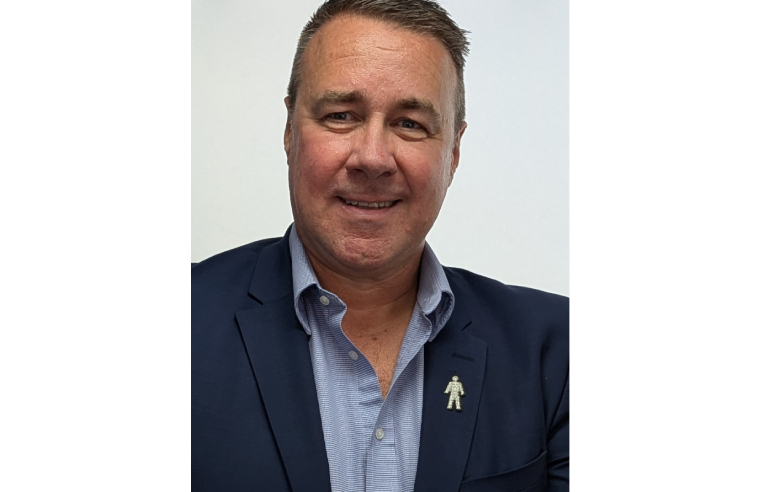Mark Hazelwood, Managing Director of Q3 Services, explains how rebooting the integrated facilities management for a new era of flexibility, efficiency, and integration.
Integrated Facilities Management (IFM) has evolved a long way in the last 30 years and has become the service model of choice for many property directors with complex, multi-site portfolios. The IFM sector represents about a third of the UK FM market and as it continues to expand, clearly has a bright and sunny future.
However, the model isn’t working for everyone. The original motivation for outsourcing FM services was because the client organization couldn’t get things done efficiently enough, cheaply enough or to the right quality. Today, there is a danger that the outsourced solution seems to have become more complex and cumbersome than the client they look after, while delivering fewer of the outcomes or benefits promised in the original tender. FM service providers are having to work harder to persuade clients that their version of IFM is significantly different and better value than that of other providers, in what has become a highly competitive market.
To be successful it’s now essential for suppliers to provide a quality customer experience and agile response to fast-changing client demands, across an ever-expanding range of service lines.
To cap it all, in the last four years, the workplace has been through an enforced restructure because of the Covid pandemic, making the challenge even greater. FM providers have had to adapt and embrace new, hybrid ways of working and deliver a meaningful workplace experience that will encourage staff off their sofas and back into their offices. Linear models based on providing a range of services 8 hours-a-day, five-days-a-week simply don’t apply anymore. FMs need to measure the pulse of the building and its staff constantly and be ready to anticipate and step in with interventions, before a minor problem becomes a crisis.
The IFM game has now shifted to a demand-driven approach, designed to meet the specific needs of the client, not the systems, processes and convenience of the service provider. Customer experience (CX) is king and an agile, flexible, responsive approach, an essential ingredient to service provision.
The four pillars of a successful integrated FM services business
To build such a successful integrated FM services approach, you need to anchor it around four pillars: technology integration, a user-centric approach, data-driven decision making and enhanced service delivery.
Technology integration: IoT-based, smart-building systems that enable predictive maintenance, real-time monitoring, and automation are becoming the norm, facilitating proactive decision-making, agile response and cost savings.
User-centric approach: Deploying purpose-built tools and apps that make seamless and the personalised experience possible for building occupants and users. This includes factoring in mobility, reporting and other must-haves that make work easier and more enjoyable for end users.
Data-driven decision making: There is a wealth of data coming in from assets performance, energy consumption patterns, maintenance needs, and occupant behavior. But so often, we are data rich and insight poor. Consolidating the data into a central command center, overlaying intelligence to provide insight and making it a system for action is where we transform data into an enabler. This data-driven approach will help optimize operations and enhance the overall facility experience.
Enhanced service delivery: Integrated FM services will continue to emphasize service quality and customer satisfaction. Service providers will leverage technology, data, and performance metrics to ensure consistent and high-quality service delivery, targeted where and when it’s needed. Continuous improvement and innovation will be key drivers to meet the evolving needs and expectations of clients and occupants.
But the road to delivering stellar integrated FM Services is strewn with challenges to which I have already alluded - a fragmented tech stack, rigidity of technology solutions, lack of interoperability, resistance to change, and escalating costs are just a few of them. How can we unblock this? Let me share Q3’s experience.
Interoperability and integrations
One of the major pain points in FM operations has been the lack of interoperability and integration with existing solutions. FM professionals have long struggled to find a software tool that can seamlessly integrate with their diverse tech stack. For Q3, Facilio's platform offers a level of interoperability that was previously unattainable, allowing for integration with existing systems and giving data context to help deliver a unified user experience. The platform's single sign-on capability has been a real game-changer, saving us all a lot of time and hassle.
Flexibility and adaptability
Traditionally, FM software providers have offered rigid, structured solutions that force property operators and FM managers to conform to their predefined workflows. This has hindered their ability to deliver a truly customer-centric experience.
Recognising this frustration, at Q3, we sought a tech partner that could provide a higher level of flexibility, leading us to Facilio and their innovative CaFM software platform. It meaningfully connects people, systems and processes, and adapts to our clients’ needs and focuses on their business goals. Our FM managers can customize the software to meet their unique operational needs, enabling a seamless user experience (UX) that enhances customer satisfaction.
One interesting aspect of the way we deploy Facilio across our IFM contracts, is that the IP lies with the client, so if we move on, they retain their data history and continuity.
Reporting and Auditing
Stringent Net Zero regulations and the need to measure and control operational carbon emissions have made comprehensive reporting and auditing essential. Unfortunately, many existing tools in the market fall short in this aspect. At Q3, we understood the importance of portfolio-wide visibility and quick report generation for auditing purposes. Through Facilio's CaFM platform, we now have access to real-time energy reporting and auditing features, making it easier for FM managers to prepare for audits and management discussions.
The demand for integrated FM solutions built on a robust, connected CaFM software is growing rapidly in the UK and European markets. It is high time we upended legacy systems and embraced change to create a better customer experience while maximizing the potential of our clients’ people and their buildings.



































